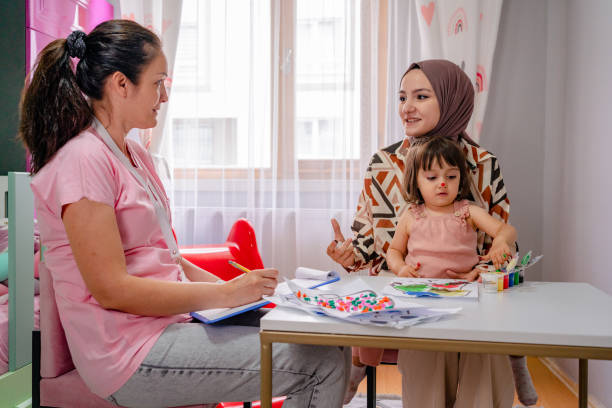Parent-teacher conferences play a vital role in student success by fostering communication, building partnerships, and aligning academic and behavioral goals between home and school. These meetings empower parents and teachers to collaborate on strategies that support learning and development.
In an age dominated by emails, apps, and learning portals, the humble parent-teacher conference may seem outdated, but nothing could be further from the truth. These meetings offer a unique and irreplaceable opportunity for direct, personalized communication between families and educators. They help build trust, align expectations, and provide tailored support for students’ academic and personal growth.
But what exactly is the role of parent-teacher conferences in today’s K–12 education system? How can schools, teachers, and parents make the most of them?
1. What Are Parent-Teacher Conferences?
Parent-teacher conferences are scheduled meetings—often held once or twice per school year—where parents or guardians meet with a child’s teacher to discuss academic progress, behavior, classroom performance, and strategies for support.
These conversations typically cover:
- Academic strengths and weaknesses
- Classroom behavior and social development
- Attendance and participation
- Learning goals and interventions
- Any special education or accommodation needs
In short, they create a bridge between school and home.
2. Why Are They Important? (Meeting the Child’s Needs Holistically)
The real value of these meetings lies in collaboration.
Key Benefits:
- Early identification of challenges: Teachers can share concerns that parents may not see at home (e.g., anxiety, learning gaps).
- Personalized strategies: Together, both parties can create plans to improve study habits, behavior, or performance.
- Mutual accountability: Parents are empowered to follow up on goals at home, while teachers commit to tracking and reporting progress.
- Stronger student support systems: Students succeed when school and home environments align.
Fact: According to the U.S. Department of Education, students whose parents are involved in school are more likely to earn higher grades and test scores, attend school regularly, and have better social skills.
3. Parent Perspective: What Do Families Gain?
Parents often enter these conferences with questions like:
- Is my child keeping up with peers?
- Does the teacher understand my child’s personality?
- What can I do to help at home?
Parent-teacher conferences answer these questions while helping caregivers:
- Understand how their child learns
- Voice concerns in a safe, respectful space
- Advocate for support, such as testing, counseling, or tutoring
- Get clear, direct insight beyond report cards
In diverse or multilingual households, these meetings can also foster cultural understanding and inclusive practices when schools make interpretation or community liaisons available.
4. Teacher Perspective: Why These Meetings Are Essential for Educators
From the teacher’s viewpoint, conferences offer more than progress updates; they help build partnerships that elevate the classroom experience.
Teachers can:
- Share examples of student work
- Address learning or behavior trends
- Gather context about home life that might affect school performance
- Establish shared expectations for homework, discipline, and goals
These meetings also give teachers insights that improve differentiated instruction and better engagement.
💡 Tip: Teachers should avoid educational jargon, be honest yet empathetic, and invite parents to speak freely.
5. Student Impact: When Adults Collaborate, Kids Win
Although students are often not present in the meeting (especially in elementary school), they are the biggest beneficiaries. A strong, unified message from both home and school can:
- Boost motivation and confidence
- Reduce confusion and mixed signals
- Encourage accountability
- Provide consistent routines and expectations
Older students (grades 6–12) may also benefit from student-led conferences, where they present their own progress and reflect on areas for improvement — a method that fosters self-advocacy and goal-setting.
6. Making Conferences More Effective in 2025
Thanks to digital tools and educational apps, parent-teacher conferences are evolving, but their purpose remains rooted in relationship-building. Here are best practices to ensure your conferences are productive:
For Teachers:
- Prepare a portfolio or summary of the student’s progress
- Offer specific examples (assignments, grades, behavior logs)
- Be culturally responsive and inclusive
- Set and document 2–3 actionable goals with families
For Parents:
- Write down questions ahead of time
- Be open about concerns or home situations
- Take notes during the meeting
- Follow up with teachers after the meeting
7. Challenges and How to Overcome Them
Despite their benefits, parent-teacher conferences come with barriers:
Common Issues:
- Busy schedules or work conflicts
- Language and cultural barriers
- Mistrust or past negative experiences with schools
- Time-limited sessions (typically 15–20 minutes)
Solutions:
- Offer flexible formats (in-person, virtual, phone)
- Provide interpreters or translated materials
- Train teachers in empathy and communication skills
- Prioritize families of at-risk students
Schools should also consider offering child care, multiple meeting times, or weekend availability to boost attendance and accessibility.
Parent-Teacher Conferences vs. Ongoing Communication
While these conferences are valuable, they should not be the only form of parent-teacher communication.
Best practice: Use a mix of touchpoints throughout the year:
- Progress reports and report cards
- Classroom newsletters or emails
- Parent portals (e.g., PowerSchool, ClassDojo, Google Classroom)
- Informal check-ins via phone or messaging apps
Think of the conference as a milestone, not the beginning or end of school-family communication.
Read Also: 10 Types of Cyberbullying Every Parent and Educator Should Know
Conclusion
The role of parent-teacher conferences is more critical than ever in 2025. As academic expectations rise and students face mental health, social, and digital challenges, the partnership between parents and teachers is key.
When these conferences are approached with empathy, preparation, and mutual respect, they become powerful tools for empowering students, strengthening families, and creating equitable school communities.
